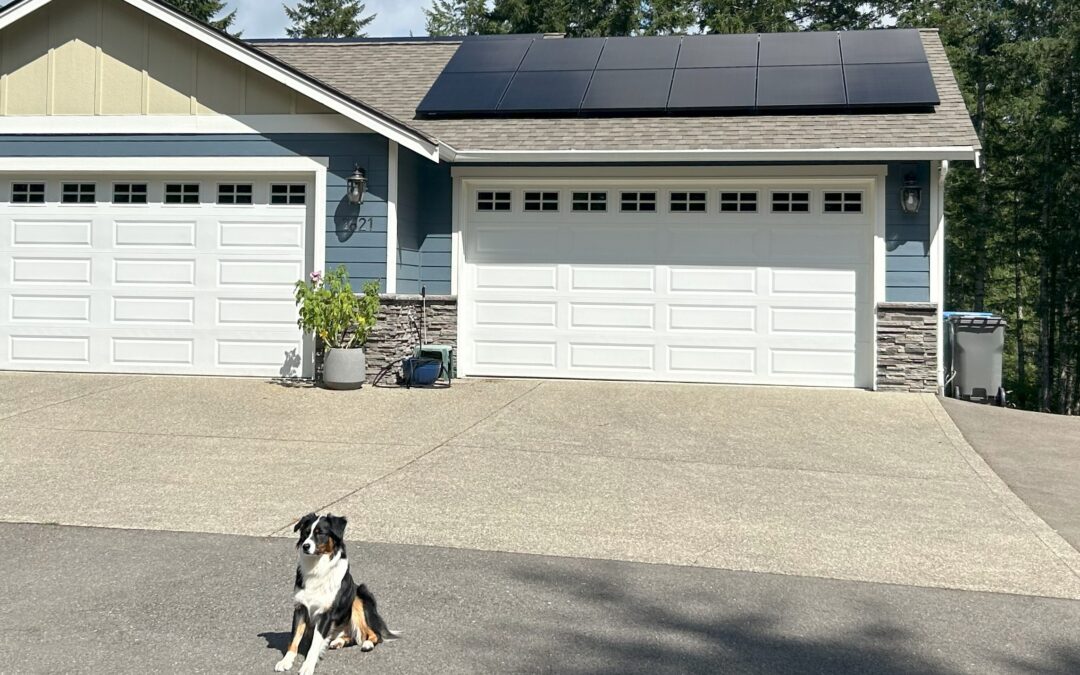PSE’s Flex Program
Puget Sound Energy (PSE) is the state’s largest utility and has been showing some innovative thinking in terms of transparency and involving customers in demand response. Demand response is a term that describes altering energy usage to match availability. As we phase out polluting fossil fuels, we will increase electrification and install more renewable energy sources on the grid. Those renewable energy projects will be both utility scale and smaller distributed generation like the solar arrays on our clients’ roofs. There are benefits to everyone that participates in this transition, and there will be some new challenges as well.
PSE is taking advantage of current technology to communicate with their customers to give them the option to participate in several different ways. In the simplest form, PSE texts customers and lets them know there is an incentive to decrease your power consumption at the moment. Customers get paid to enroll in the program and get paid for the savings they can enact during what PSE calls “Flex Events.” Additional aspects of the program can provide rebates and incentives for using “smart” thermostats, EV’s, or even batteries which can be controlled by the utility to shift the timing of demand or to allow PSE to utilize stored energy. Learn more from PSE here https://www.pse.com/en/rebates/PSE-flex
If you are a PSE customer, there is no downside to enrolling in the alerts, so I would certainly say to go ahead with that at least. You can learn more for yourself about the details of the other aspects of the program.
Reasons for the Flex Program
PSE has said they don’t implement the Flex protocols in advance of outages necessarily, but that it is more of a cost savings measure at times when energy is more expensive. Daniel Schrager just had a nice article in The Olympian here (paywall, 24 hour free access for registering) https://www.theolympian.com/news/state/washington/article298205253.html
One of the main underlying trends our region is facing is a decline in available hydro power due to declining precipitation and snow packs. There is no doubt we are seeing the climate gradually changing, even if there is still discussion regarding the complexity surrounding the causes of global climate change and the effects we see here in the Pacific NW. The main reason we have been motivated to create Power Trip Energy and to continue encouraging clean local rooftop solar is to mitigate our contribution to CO2 into the atmosphere, while helping our clients save money. Even if one does not think there is conclusive evidence showing correlation between human carbon emissions and decreased snowpack feeding our hydro system, it seems that it makes a lot of sense to err on the side of caution and avoid them as much as possible.
Another dominating trend we will see is a transition to clean renewable energy to provide the additional power we need for electrification of homes and vehicles, and for new energy hungry industries such as the increase in data centers for our information technologies. You will be participating in this change whether you take personal action or not. The question will be whether you pay for someone else to provide that new power, or whether you invest in producing it yourself. If this resonates with you, we’d be happy to talk to you about how you can effectively and economically make solar power on your own roof.
